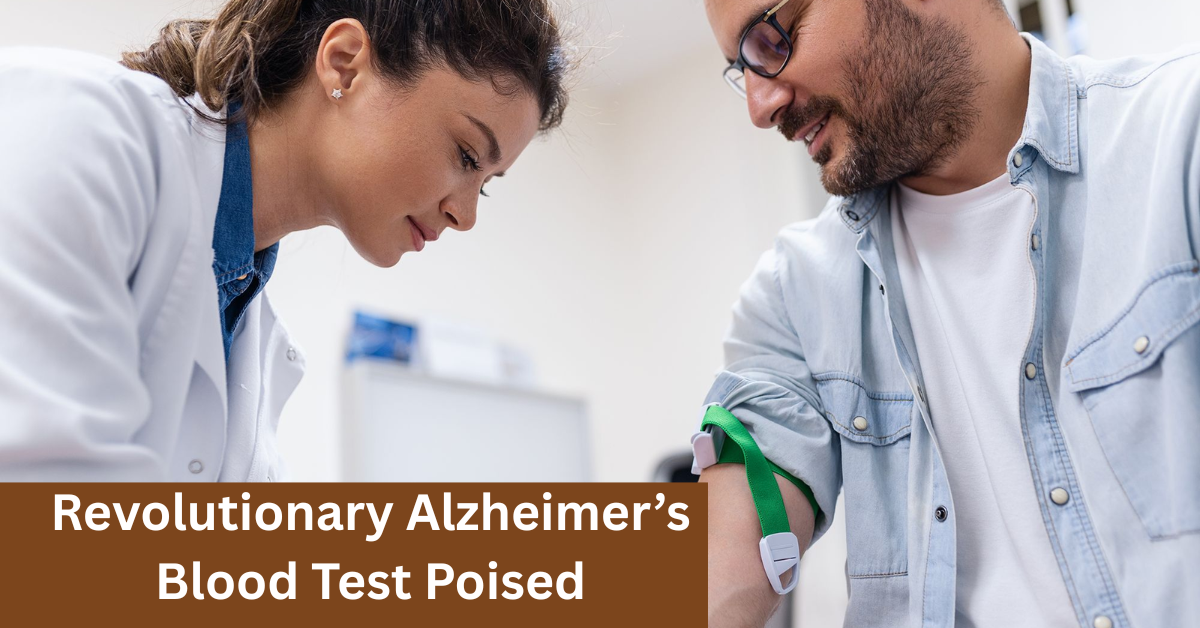Alzheimer’s disease has long challenged the medical community with its complex diagnosis process. Traditionally, detecting Alzheimer’s involves costly and invasive procedures that often come too late for effective intervention. However, a groundbreaking blood test is on the horizon in the United States, promising a simpler, quicker, and more affordable way to identify the disease at its earliest stages.
This innovative development not only offers hope for millions at risk but also aims to reshape how healthcare providers approach Alzheimer’s detection and management. Younger generations, too, stand to benefit from advances in this field as early diagnosis can significantly improve long-term outcomes and planning.
Understanding the Need for Early Alzheimer’s Detection
Alzheimer’s disease affects millions of Americans and is a leading cause of dementia worldwide. Early detection is crucial because the progression of the disease can be slowed with timely treatment and lifestyle adjustments. Currently, diagnosis often relies on cognitive tests, brain imaging, and spinal fluid analysis, which can be expensive, uncomfortable, and inaccessible to many.
Without early detection, patients may miss out on interventions that preserve memory and cognitive function. Additionally, families and caregivers face increased emotional and financial burdens when the disease is diagnosed too late. A blood test could change this narrative by making screening faster, easier, and more widespread.
How the Alzheimer’s Blood Test Works
The new blood test focuses on detecting specific biomarkers associated with Alzheimer’s disease. These biomarkers include abnormal levels of proteins like amyloid beta and tau, which are known to accumulate in the brains of Alzheimer’s patients. Unlike previous diagnostic tools, the blood test analyzes these proteins from a simple blood sample, providing results without the need for invasive procedures.
Blood samples are processed using advanced technologies that can detect minute changes in protein structures. This precision allows for identification of the disease even before significant cognitive symptoms appear. This level of sensitivity could revolutionize how Alzheimer’s is approached by healthcare professionals nationwide.
Benefits of the Blood Test Over Traditional Methods
| Aspect | Traditional Methods | Blood Test |
|---|---|---|
| Invasiveness | Requires spinal fluid collection or brain imaging | Simple blood draw |
| Cost | High due to imaging and specialist involvement | More affordable and accessible |
| Accessibility | Limited to specialized medical centers | Available through standard labs and clinics |
| Speed | Days to weeks for results | Potentially same-day results |
| Early Detection | Often after noticeable cognitive decline | Before symptoms fully develop |
Implications for Patients and Families
The introduction of a reliable blood test brings significant hope for patients and their families. Early diagnosis means individuals can take proactive steps regarding their health, including starting treatments that may slow the disease, making lifestyle changes, and planning for future care needs. For younger family members, understanding genetic or environmental risk factors becomes clearer, potentially influencing preventative measures.
Moreover, knowing early allows families to access support networks and resources sooner, easing the emotional burden that comes with Alzheimer’s diagnosis. This can significantly improve quality of life for both patients and caregivers as they navigate the challenges ahead.
Impact on Healthcare Providers and the Medical Community
Healthcare professionals are eager for diagnostic tools that increase accuracy and efficiency. The blood test promises to streamline the Alzheimer’s diagnosis process, allowing doctors to identify at-risk patients faster and initiate treatment plans sooner. This could reduce the pressure on costly imaging centers and specialists, making Alzheimer’s care more sustainable for the healthcare system.
Additionally, earlier diagnosis can improve participation rates in clinical trials, accelerating the development of new therapies. This ripple effect could advance Alzheimer’s research and deepen our understanding of the disease on a national scale.
Challenges and Considerations for Widespread Adoption
Despite its promise, several challenges remain before the blood test becomes a standard tool in the U.S. medical landscape. Regulatory approval processes must be navigated, ensuring the test meets strict accuracy and safety standards. Healthcare providers also require training to interpret results correctly and incorporate them into comprehensive care plans.
Insurance coverage and cost reimbursement systems will play a crucial role in accessibility. Without sufficient policies, some patients may find the test financially out of reach. Public awareness campaigns will be needed to educate individuals about the benefits of early testing and encourage proactive health screenings.
How the Blood Test Could Influence Alzheimer’s Treatment Advances
Early identification through blood testing opens new doors for personalized medicine. Treatment strategies can be tailored based on biomarker profiles, potentially increasing their effectiveness. Pharmaceutical companies gain a valuable tool for monitoring disease progression and therapeutic impact, accelerating innovation in drug development.
Furthermore, lifestyle intervention programs focused on diet, exercise, and cognitive health can be implemented sooner, enhancing their preventive potential. This holistic approach, combined with early diagnosis, may help reduce the overall burden of Alzheimer’s on society.
Looking Toward the Future: What This Means for Younger Americans
Younger generations often consider Alzheimer’s a distant concern, but early testing has implications for them too. Genetic testing paired with biomarker analysis can identify risks decades before symptoms appear. This knowledge encourages healthier living and greater mindfulness about brain health starting early in life.
Moreover, as family history plays a role in Alzheimer’s, younger people can better understand their potential vulnerability. This empowers informed decision-making regarding long-term healthcare, career, and financial planning. A future with accessible blood testing may see a shift in attitudes toward brain health across all age groups.
Conclusion: A Game-Changer in the Fight Against Alzheimer’s
The impending availability of an Alzheimer’s blood test in the U.S. marks a pivotal moment in medical diagnostics and patient care. By simplifying detection and enabling earlier intervention, this technology offers hope for millions affected by the disease and their loved ones. Its impact will be far-reaching, improving patient outcomes, supporting families, and advancing medical research.
As this test moves closer to widespread use, it invites a new era where Alzheimer’s detection is not only more accessible but also an integral part of proactive health management for Americans of all ages. Staying informed and engaged with these advancements fosters a healthier future, empowering individuals to take charge of their brain health like never before.




